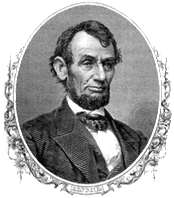 Stop! The claims being made on both sides, Republican and Democrat, regarding historical triumphs are flawed! The political parties do not represent consistent ideologies throughout their histories. The essential ideological arguments today are (and always have been) between Conservatism and Liberalism, and not Republicans and Democrats.
Stop! The claims being made on both sides, Republican and Democrat, regarding historical triumphs are flawed! The political parties do not represent consistent ideologies throughout their histories. The essential ideological arguments today are (and always have been) between Conservatism and Liberalism, and not Republicans and Democrats.
Republicans, for example, can make a legitimate claim to being instrumental in the Civil Rights Act of 1964, but conservatism cannot. It was from an eloquent presentation by Republican senator Everett Dirksen who said, “This is a bill whose time has come” that persuaded enough Republicans (not the majority of Republicans) to overcome the bloc of Southern Democrats (not the majority of Democrats) and got it passed.
Richard Russell, a Democratic Senator from Georgia, launched a filibuster to prevent its passage saying, “We will resist to the bitter end any measure or any movement which would have a tendency to bring about social equality and intermingling and amalgamation of the races in our states.”
Russell was a Democrat but not a liberal. In fact, he was the founder of the Conservative Coalition that brought Southern Democrats and Republicans together to wrest control of Congress. Southern Democrats largely became Republicans in 1964 due to their anger over the passage of the Civil Rights Act.
Even within the larger philosophical movements of Liberalism and Conservatism, there are different societal and economic contexts. Republicans in Lincoln’s time were not  exclusively the party of conservative values as they have become.
exclusively the party of conservative values as they have become.
Lincoln considered himself a conservative Constitutionalist, and was supported by Republicans (primarily from the North), but in assuming all powers not delegated in the Constitution, including the power to suspend Habeas Corpus, he took more liberty with constitutional authority than perhaps any President in history.
He also became socially liberal in his interpretation of the natural rights the Constitution upholds. While the Republican Party was literally founded by anti-slavery activists (the abolitionists) in 1854, “emancipation” was the result of Liberalism to counter Conservatism.
The claims of either political party, however, for creating huge ideological shifts in America is nonsense. One side may harbor a majority of those who hold a particular philosophical position over the other, but political party affiliations are merely a skiff deployed from that larger vessel.
John Locke who is often credited for the creation of “liberalism” defined the concept of each of us having “natural rights” and the “right to life, liberty and property.” The root definition of “liberalism” is liberty; Latin for “free.” Not today’s interpretation among anti-liberals as meaning “excessive” (as in a liberal application of suntan oil).
“free.” Not today’s interpretation among anti-liberals as meaning “excessive” (as in a liberal application of suntan oil).
Conservatism, which is defined as “reluctance to accept change” actually has its roots with the Tories or the “Loyalists” who wished to remain loyal to England and the monarchy.
Take the conservative position toward women’s suffrage in the early 20th century. Life Magazine in 1905 offered this (edited here) as an argument to the more liberal North American Review which had just offered its support of the movement.
“The primary objection to woman suffrage is that it would add an enormous army of unqualified voters to the huge mass of them that vote now…There is nothing the average American woman wants that the average American man will not give her if he can get it…The average woman thinks the same… for our part, we are old fogy, and hope that it will never need to happen. Not in our time, kind Fate; not in our time, anyhow.”
The article was intended as a reasoned argument to reflect the beliefs of many Americans at the time. It was a position to maintain the status quo and to protect what it saw as America’s best interests.
That is clearly not the position of most Republicans today, but it is historically consistent with conservative philosophy. What is illustrated is how the conservative status quo must be pushed by a consistent progressive movement. We can glean from history that radical voices are required at times to unite in opposition to the status quo when conservatism denies natural human and civil rights.

That has primarily been the course of the liberal movement and why I, personally, align myself to the left; it is the choice I make between different philosophies to fulfill what I view as my responsibility as an American.
I understand what it means to “conserve” and to be cautious; I understand why it’s important to protect that which protects us. I also understand what it means to respect differences and to allow for new ideas. The latter sometimes has to challenge the former in order to bring about a better progression toward Life, Liberty and the Pursuit of Happiness.
While it may be true that modern conservatives align more with the Republican Party and liberals with Democrats, if the discussion can gravitate away from partisan bias and toward a more genuine understanding of Conservatism and Liberalism…maybe this could become a more civil political climate….and beyond that, maybe we can start to get better things done in the interest of all Americans.